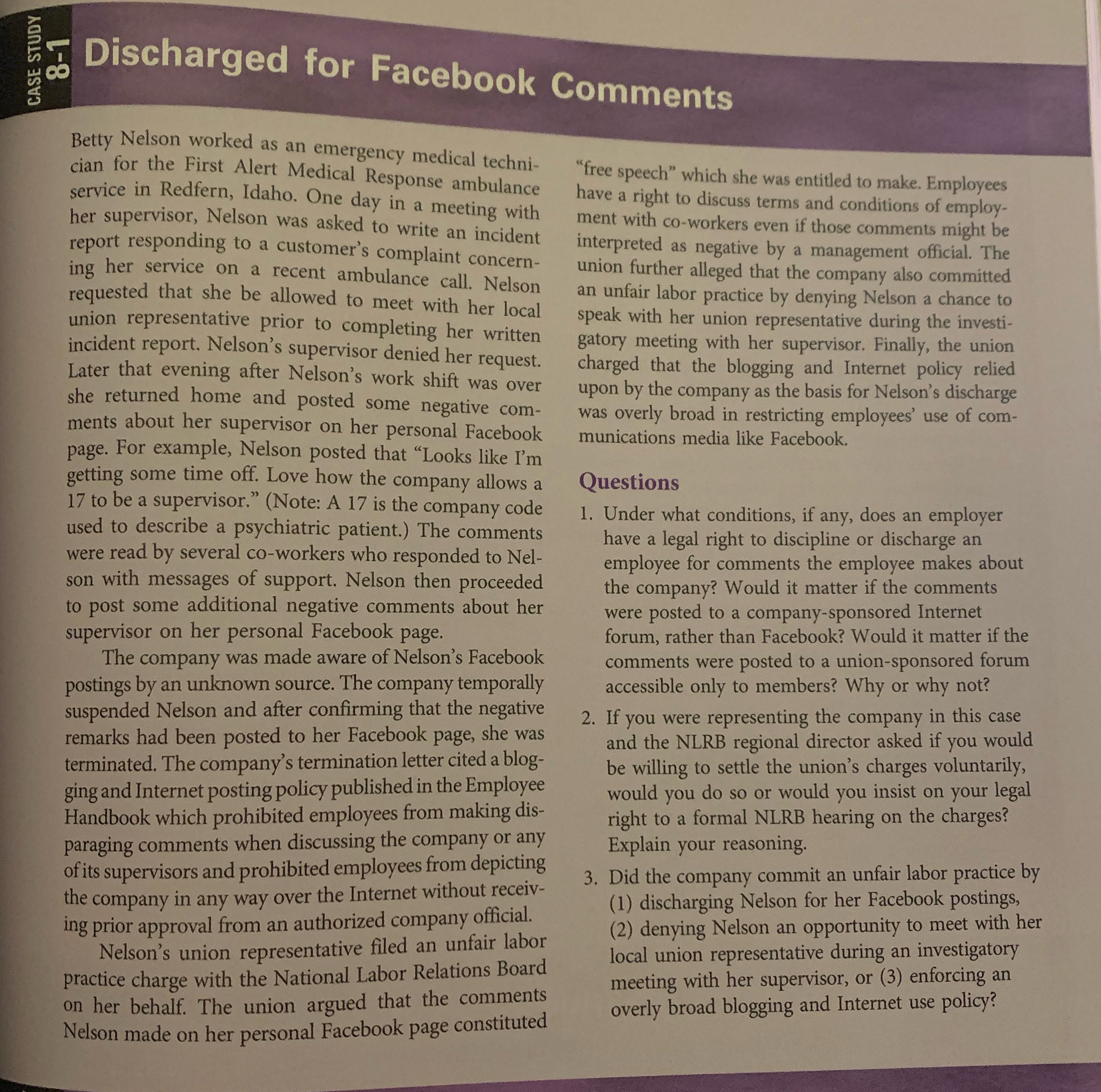CASE STUDY Discharged for Facebook Comments Betty Nelson worked as an emergency medical techni- cian for the First Alert Medical Response ambulance "free speech" which she was entitled to make. Employees service in Redfern, Idaho. One day in a meeting with have a right to discuss terms and conditions of employ- her supervisor, Nelson was asked to write an incident ment with co-workers even if those comments might be report responding to a customer's complaint concern- interpreted as negative by a management official. The ing her service on a recent ambulance call. Nelson union further alleged that the company also committed requested that she be allowed to meet with her local an unfair labor practice by denying Nelson a chance to union representative prior to completing her written speak with her union representative during the investi- incident report. Nelson's supervisor denied her request. gatory meeting with her supervisor. Finally, the union Later that evening after Nelson's work shift was over charged that the blogging and Internet policy relied she returned home and posted some negative com- upon by the company as the basis for Nelson's discharge ments about her supervisor on her personal Facebook was overly broad in restricting employees' use of com- page. For example, Nelson posted that "Looks like I'm munications media like Facebook. getting some time off. Love how the company allows a Questions 17 to be a supervisor." (Note: A 17 is the company code 1. Under what conditions, if any, does an employer used to describe a psychiatric patient.) The comments have a legal right to discipline or discharge an were read by several co-workers who responded to Nel- employee for comments the employee makes about son with messages of support. Nelson then proceeded the company? Would it matter if the comments to post some additional negative comments about her were posted to a company-sponsored Internet supervisor on her personal Facebook page. forum, rather than Facebook? Would it matter if the The company was made aware of Nelson's Facebook comments were posted to a union-sponsored forum postings by an unknown source. The company temporally accessible only to members? Why or why not? suspended Nelson and after confirming that the negative 2. If you were representing the company in this case remarks had been posted to her Facebook page, she was and the NLRB regional director asked if you would terminated. The company's termination letter cited a blog- be willing to settle the union's charges voluntarily, ging and Internet posting policy published in the Employee would you do so or would you insist on your legal Handbook which prohibited employees from making dis- right to a formal NLRB hearing on the charges? paraging comments when discussing the company or any Explain your reasoning. of its supervisors and prohibited employees from depicting 3. Did the company commit an unfair labor practice by the company in any way over the Internet without receiv- (1) discharging Nelson for her Facebook postings, ing prior approval from an authorized company official. (2) denying Nelson an opportunity to meet with her Nelson's union representative filed an unfair labor local union representative during an investigatory practice charge with the National Labor Relations Board meeting with her supervisor, or (3) enforcing an on her behalf. The union argued that the comments overly broad blogging and Internet use policy? Nelson made on her personal Facebook page constituted







